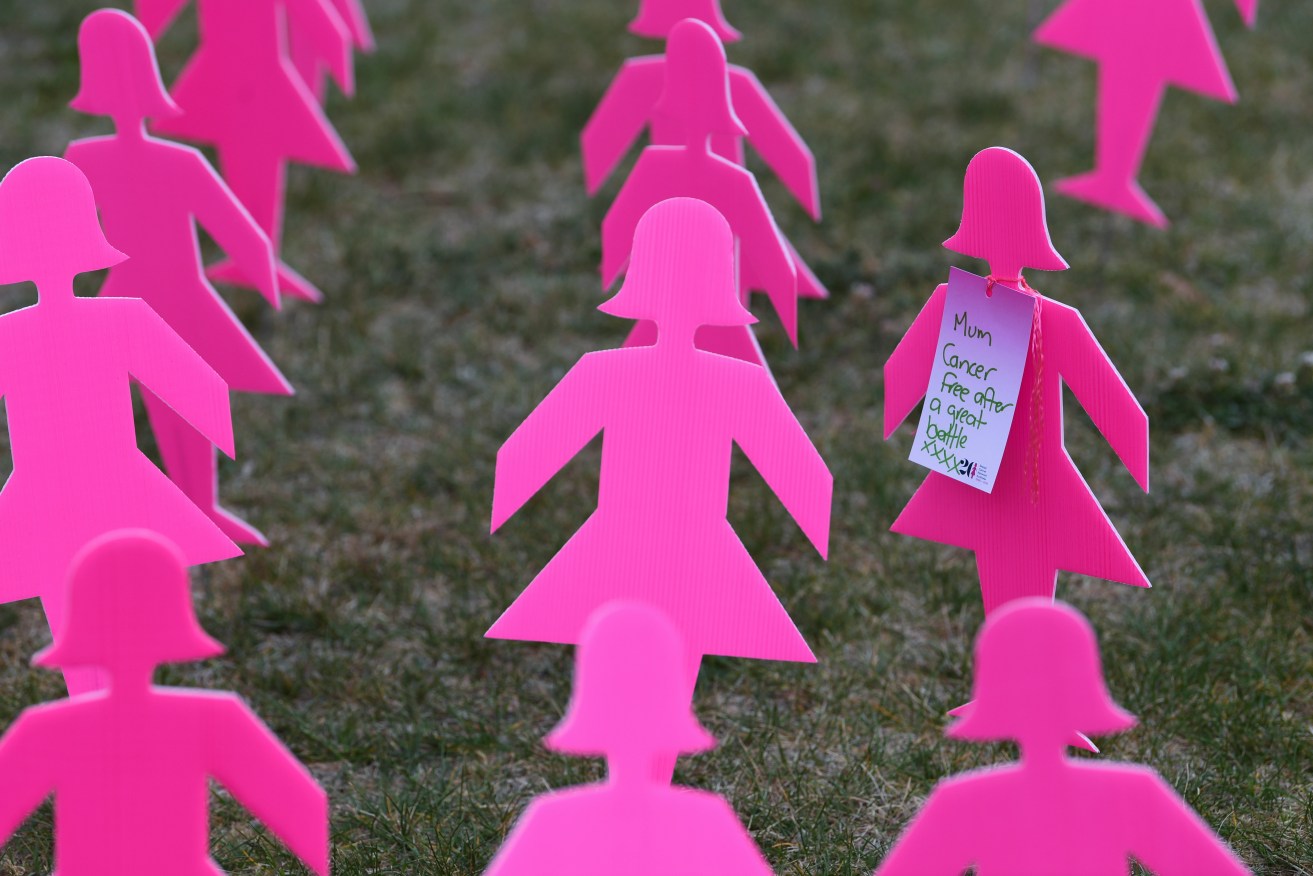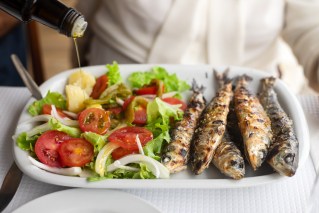Could COVID-19 be key to fighting breast cancer?

The COVID pandemic and subsequent vaccine development could hold a silver lining for breast cancer. Photo: AAP
COVID-19 immunity and vaccines could be key to fighting breast cancer, a researcher says.
Clare Slaney is focused on improving CAR T-cell therapy – a type of immunotherapy whereby doctors collect a small portion of a patient’s T-cells, which are an important part of the immune system.
The cells have the ability to track down and destroy abnormal cells, including some cancer cells, and the therapy has them re-engineered in labs to carry special anti-cancer molecules called chimeric antigen receptors, or CARs, on their surface.
The cells then rapidly multiply when they are injected back into a patient.
The type of immunotherapy has shown great promise for some blood cancers, but it is yet to prove effective for solid tumours like breast cancer.
Dr Slaney intends to try collecting people’s new COVID-specific “memory T cells”, rather than regular T cells, and re-engineering them to recognise specific breast cancer surface proteins.
The coronavirus cells could therefore be used to fight breast cancer, and most people have them given they’ve either had the virus or been vaccinated against it, Dr Slaney said.
The National Breast Cancer Foundation is backing her research, announcing funding for the project on Saturday – the three-year anniversary of the pandemic declaration.
“The initial idea came to me as I was sitting at home frustrated in the early stages of the pandemic, unable to access my lab, watching my colleagues in infectious diseases working so hard to fight the SARS-COV2 virus,” Dr Slaney said.
“I suddenly thought can we leverage this virus to do something useful.
“When the COVID-19 vaccines emerged, I had the idea that we just might be able to use COVID-19 immunity and vaccines to fight breast cancer.”
The goal of the research was to insert an anti-cancer molecule into the COVID-specific T cells, and use a COVID-19 vaccine to boost the cells in cancer patients, Dr Slaney said.
Regular T cells were different from the re-engineered COVID-specific cells in that they did not have an anti-cancer molecule on their surface.
Even if an anti-cancer molecule was inserted into a regular T cell, there wasn’t a vaccine to boost their response.
“The beauty is that we can use the COVID vaccine to boost the anti-cancer response,” Dr Slaney said.
The cells can be activated by a COVID vaccine because they already recognise the virus’s spike protein.
Early indications for the work were “extremely positive”, with researchers hoping to make great progress in the next three years and run a clinical trial if the results were promising, Dr Slaney said.
The prospect of the research proving a success was exciting for 29-year-old Victorian Jessica Pugliese, who in March 2022 was diagnosed with invasive breast cancer just weeks after getting married.
“Due to COVID-19 restrictions I actually got the news I had breast cancer on my own, which was really tough, and going through treatment during the pandemic was also very hard,” Ms Pugliese said.
“But hearing that thanks to research, COVID-19 might actually hold the key to fighting breast cancer is so exciting.”
If successful, the project would provide a substantial breakthrough in cancer treatment, the breast cancer foundation said.








